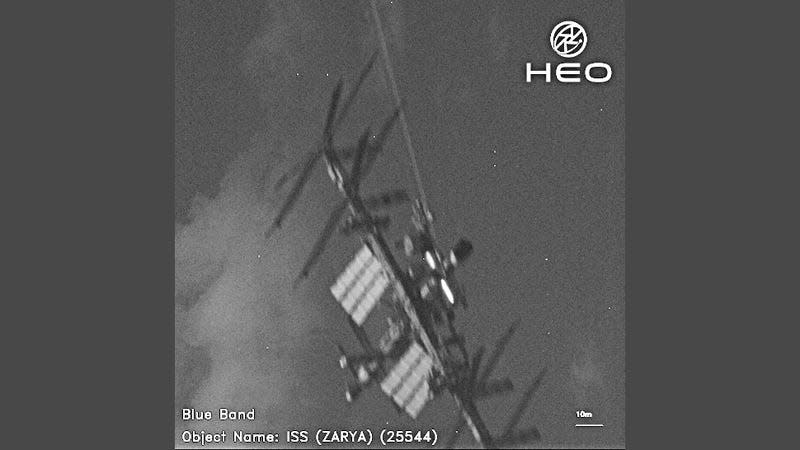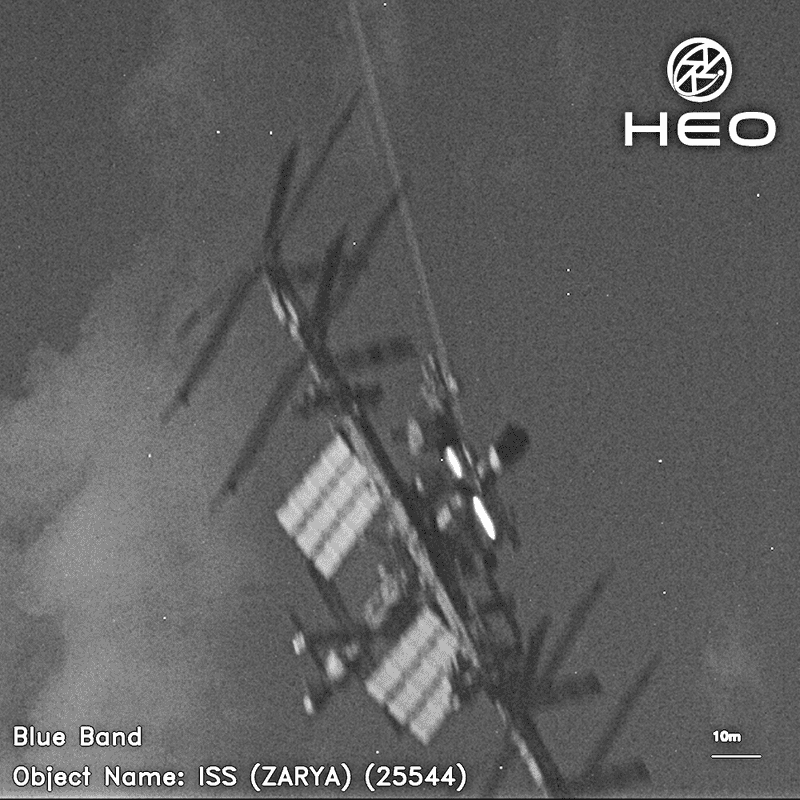Orbital Paparazzi Captures a Sneaky Picture of the ISS

- Image: HEO Robotics
The International Space Station (ISS) was caught looking a little undignified in a new photo captured by an imaging satellite in orbit.
This week, Australia-based HEO Robotics released a photo of the ISS like we’ve never seen it before. The fuzzy black-and-white image was taken by one of the company’s non-Earth imaging satellites as it was a mere 43 miles (69 kilometers) away from the 356-foot-long (109 meters) space station.

“Non-Earth imaging provides the best view of satellites in space,” HEO Robotics wrote on X. HEO Robotics provides satellite imagery of objects in orbit, as well as satellite inspection services for government and commercial operators. The company has imaged over a hundred objects after they reached their orbital destinations and later used its software to identify the objects.
The company has a fleet of 30 sensors in low Earth orbit, which it uses to snap unflattering photos of orbiting satellites and spacecraft.
Earlier in February, HEO Robotics captured a photo of the European Space Agency’s ERS-2 Earth observation satellite as it tumbled towards its fiery death through Earth’s atmosphere. The company’s nosy satellites also gave us our first look at SpaceX’s Starlink V2 satellite in orbit.
But perhaps no other object in low Earth orbit is as famous as the ISS, which is about the size of an American football field and with a mass of nearly 1 million pounds, according to NASA. The space station has been in orbit for more than 20 years, circling our planet at a distance of 250 miles (460 kilometers).
We’re used to seeing NASA images of the ISS soaring gracefully through orbit, looking like a mechanical phoenix. The recent satellite image of the space station is a good reminder that it’s just an awkward pile of metalfloating through space, doing its best.
For more spaceflight in your life, follow us on X and bookmark Gizmodo’s dedicated Spaceflight page.

